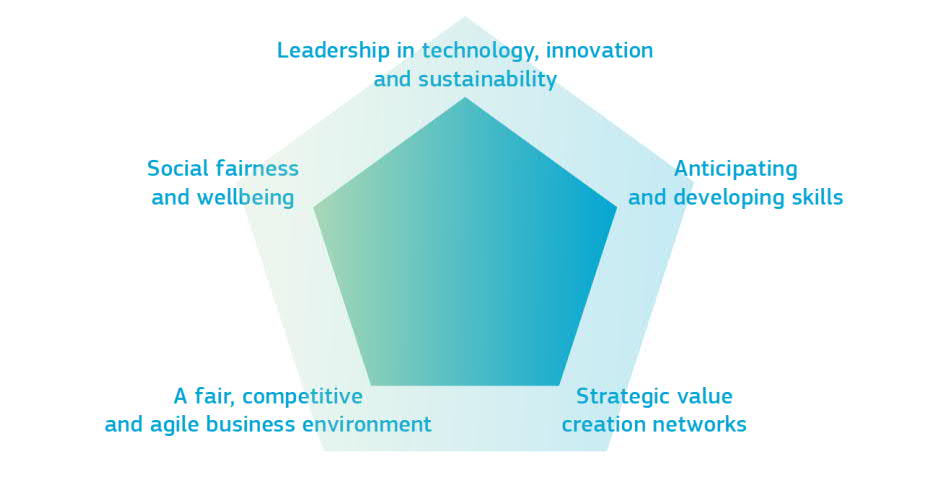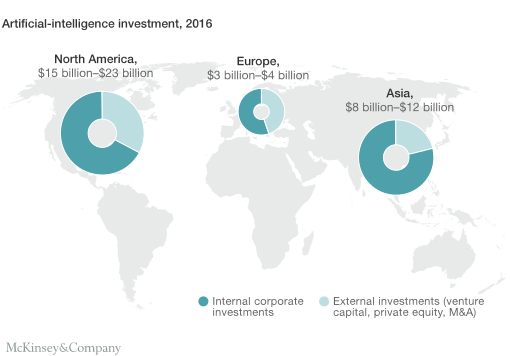The Industry 2030 High Level Industrial Roundtable, an expert panel appointed by the European Commission, has identified 3D printing as a key driver of innovation in its latest report ‘A vision for the European industry until 2030’.
In the document, various policy suggestions are made to help develop the industry over the next 11 years across three crucial areas. As the introduction of the document states, “In 2030, European industry will be a global leader that will responsibly deliver value for society, the environment and the economy.”
“The future European industrial model will successfully connect economic progress with major environmental and societal challenges.”

The coming digitalization
The Industry 2030 roundtable was appointed by the European Commission in 2017. The purpose of the Industry 2030 commission was to act as an independent policy advisor to the European Union on the future of European industry. The panel consisted of twenty experts from businesses, trade unions, finance, academia, and innovation and research groups. Members include Saori Dubourg, BASF‘s Member of the Board of Executive Directors, Dochul Choi of Samsung Electronics, and Director of TUM Munich School of Robotics and Machine Intelligence, Sami Haddadin, among others.
As artificial intelligence, automation, and digitalization are rapidly transforming the manufacturing and services industry, the commission recommends specific policy actions for better adaptation and transformation towards a new economy.
According to the new report, Europe “will invest heavily in cutting-edge and breakthrough technologies, respect planetary boundaries and biodiversity, take leadership in smart European and global alliances, reinforce our global competitiveness and, last but not least, invest in current and future generations by addressing key societal challenges, providing innovative jobs in all regions and investing in new skills.”
“This is how we, members of Industry 2030 high level industrial roundtable, envision Europe in 2030.”

Circular economy
Moving towards 2030, the concerns raised in the report include areas of potential in 3D printing, such as sustainability and circular economy, access to low carbon energy resources and raw materials, and the centrality of the European Single Market.
The Industry 2030 panel stated:
“The EU will become the world-leader in addressing climate change and respecting planetary boundaries and will pave the way for global climate neutrality, leading the world away from fossil fuels.”
Among the ‘game-changing’ actions suggested by the commission are investments in moonshot technologies in sectors in which Europe already has competent research and technical resources. These technologies include advanced biomaterials, quantum computing, multi-scale robotics, and green automation.
All such policy actions will be taken in accordance with the political and civic values of Europe. As the report affirms, “Continuously progressing and benefiting from strong democratic principles, freedom, unity in our diversity and the rule of law, by 2030, the European Union will successfully become an innovative, sustainable, competitive and human-centred collaborative economy in an increasingly populated, resource constrained and interconnected world.”

To learn more about the future of manufacturing subscribe to our 3D printing newsletter and join us on Facebook and Twitter.
Visit our Jobs to start a career in manufacturing.
Featured image shows five key drivers identified by the Industry 2030. Image via European Commission.

Leave A Comment